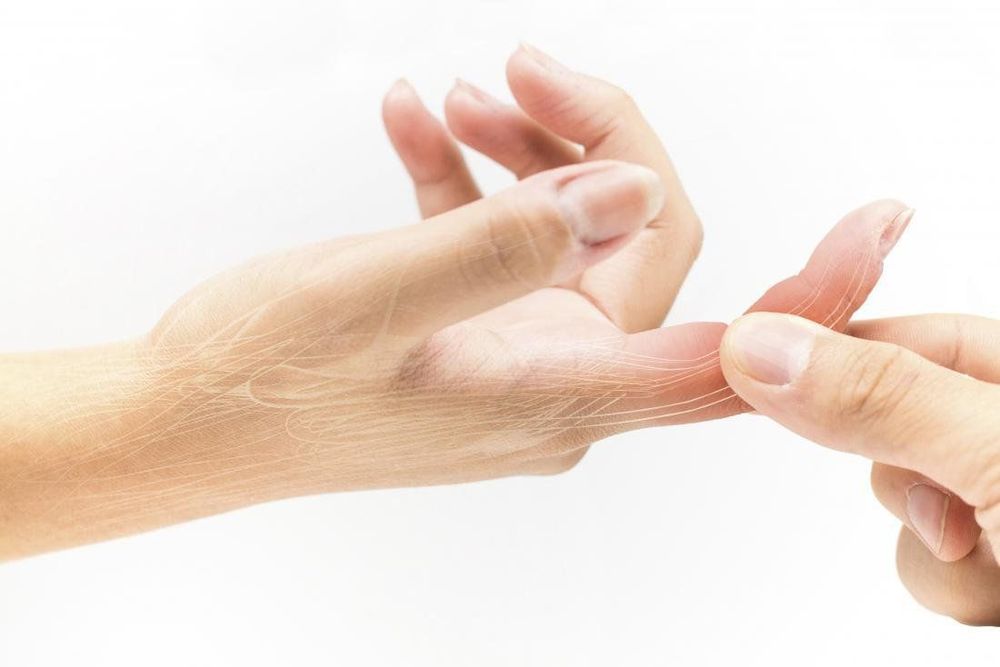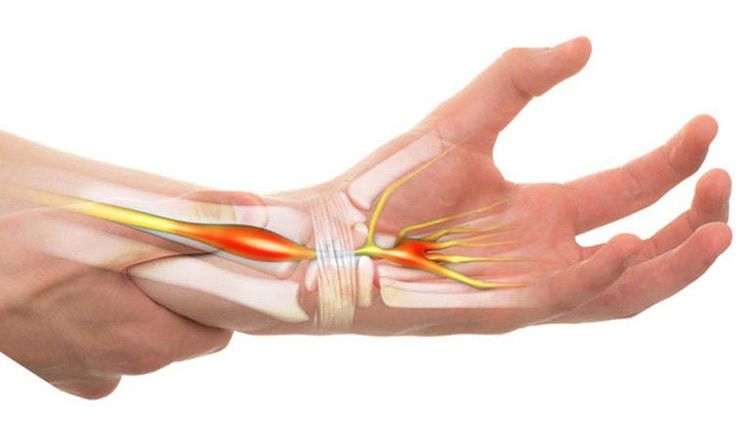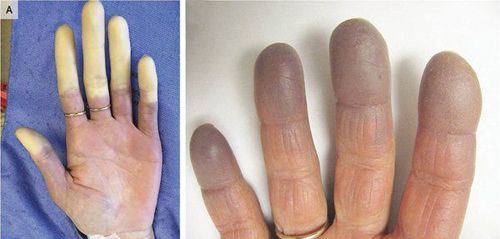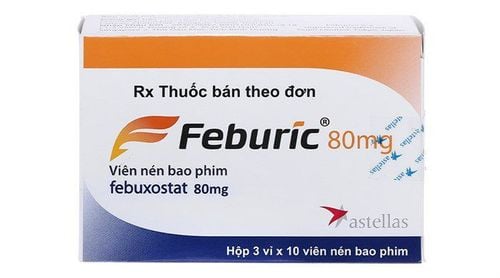The article is professionally consulted by Master, Doctor Le Thi Minh Huong - Doctor of Resuscitation - Emergency, Department of Resuscitation - Emergency, Vinmec Nha Trang International General Hospital
There are many causes of finger swelling, with kidney disease being one of the most concerning. However, individuals with swollen fingers should consider other characteristics, such as accompanying symptoms and medical history, to make appropriate choices regarding examination and treatment.
1. Finger Swelling Due to Water Retention
Water retention occurs when excess fluid accumulates in the tissues or joints. Signs to recognize this condition include swollen pinky fingers and difficulty removing rings. It often happens after salty meals. However, if swelling in the hands and fingers persists, it’s important to see a doctor, as this could be a sign of an underlying health issue.
2. Exercise and High Temperatures
During exercise, the heart, lungs, and muscles work harder, causing blood to be directed to these organs instead of the fingers. The small blood vessels respond to this change by dilating, which can lead to finger swelling.
This phenomenon is similar to the body's reaction to increased temperatures in hot weather. To cool down, the blood vessels on the skin swell to allow heat to escape from the surface. This is a completely normal physiological response.
3. Injuries
Finger swelling can occur in cases of finger sprains, dislocations, or fractures.
If the injury is not severe, you can apply ice, rest, and take over-the-counter pain relief to aid recovery. However, if the injury is serious—such as an inability to straighten the finger, fever, or severe pain—you should seek medical attention immediately.

4. Infections
Three types of infections can cause finger swelling:
- Herpetic Whitlow: This infection leads to small blisters and swelling in the finger.
- Paronychia: An infection around the nail caused by bacteria or fungi.
- Felon: An infection at the fingertip, causing pus and significant pain.
- Infections can spread to other parts of the body if not treated promptly.
5. Arthritis
- Rheumatoid Arthritis (RA): This condition affects the synovial lining of the joints, leading to swelling, pain, and stiffness, usually starting in the hand joints and often affecting both hands.
- Psoriatic Arthritis: This can affect individuals with psoriasis, causing swelling in the fingers and toes.
6. Gout
- Gout commonly occurs in individuals with diets high in meat, seafood, and alcohol. While it often causes swelling and pain in the big toe, it can also affect the finger joints.
- Swelling occurs due to an excess of uric acid in the blood, forming crystal deposits in the joints. Medications can help alleviate pain and prevent further swelling.
7. Medications
Certain medications can lead to finger swelling, including:
- Pain relievers like aspirin, ibuprofen, and naproxen.
- Steroids.
- Some diabetes or hypertension medications.
- Nerve pain medications.
- Hormonal therapies like estrogen and testosterone.
Finger swelling due to medication is usually not serious, but consult a doctor if you have concerns.
8. Carpal tunnel syndrome
Carpal Tunnel Syndrome occurs when the nerves in the wrist are compressed, leading to pain, tingling, numbness, and swelling in the fingers. This condition often affects those whose work involves repetitive hand movements. It can be treated effectively without causing long-term damage.

9. Trigger finger
Trigger fingers can cause swelling in the fingers. This condition often occurs due to tendon inflammation and can arise after carpal tunnel surgery, especially in individuals with rheumatoid arthritis (RA) or diabetes. Trigger finger may resolve on its own, but if the condition worsens, medical consultation is necessary for treatment advice.
10. Kidney disease
The kidneys are responsible for removing toxins and excess fluids from the body. One of the early signs of kidney dysfunction is swelling in the fingers, feet, and around the eyes. Individuals with a history of diabetes or high blood pressure are at a higher risk for kidney disease. Managing swelling symptoms is crucial for protecting kidney function and preventing further progression. In cases of poor kidney function, treatments such as dialysis and transplantation may be required.
11. Pregnancy
Women in the third trimester of pregnancy may experience swelling in the fingers, ankles, and feet. Sudden swelling in the hands and face should be monitored closely, as it may indicate preeclampsia. Those with preeclampsia need careful monitoring until delivery, with symptoms including high blood pressure, swelling, and sometimes headaches, abdominal pain, and vision changes.
12. Sickle Cell Disease
Sickle cell disease is characterized by rigid, crescent-shaped red blood cells instead of soft, disc-like cells. These abnormally shaped cells can get trapped in small blood vessels, causing blockages. If blockages occur in the hands and feet, they can lead to swelling and pain.
Sickle cell disease can also cause infections, anemia, strokes, and vision problems. It is a chronic condition that cannot be completely cured, and patients must manage it throughout their lives.
13. Lymphedema
Lymphedema can be a side effect of cancer treatment. Swelling in the fingers often occurs after breast cancer treatment, as lymph nodes in the armpit may be removed. This disrupts lymphatic flow, leading to swelling in the arm and hand.
14. Raynaud's Disease
Raynaud's disease is a rare condition affecting blood vessels in the fingers and toes. It causes blood vessels to constrict in response to cold or stress, leading to pain and reduced blood flow to the fingers.
When the blood vessels reopen and circulation resumes, the fingers may experience sharp pain and swelling. In severe cases, restricted blood flow can cause ulcers or even tissue death.

15. Scleroderma
Scleroderma is a condition that thickens and hardens the skin due to excessive collagen production. In the hands, it can lead to stiffness and swelling of the fingers. In severe cases, the disease can damage internal organs. However, scleroderma is treatable.
Swelling in the fingers can be a sign of various medical conditions. Therefore, if you experience unusual symptoms and have a history of kidney issues, it's important to visit a healthcare facility for a comprehensive evaluation. This allows doctors to assess your health status and intervene when necessary.
Reference source: webmd.com
To arrange an appointment, please call HOTLINE or make your reservation directly HERE. You may also download the MyVinmec app to schedule appointments faster and manage your reservations more conveniently.









